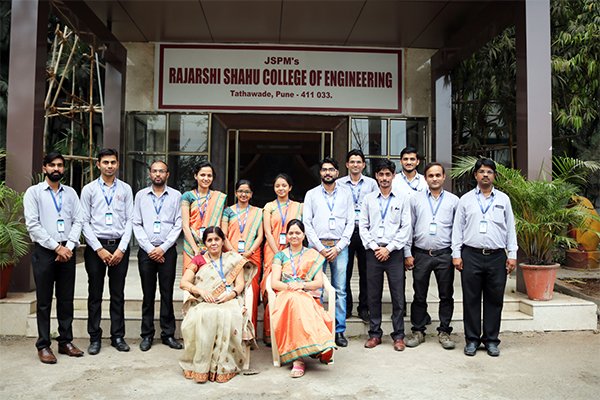Civil Engineering
Civil Engineering branch plays a vital role in developing country infrastructure keeping in view the rising demand of civil engineering professional. The college started diploma of civil engineering in year 2013-14. <br> A 3 years diploma programme started with intake of 60 students. In year 2014-15 in increased to 120 students. The department fulfills the requirements of acquisition of various skills, designed curriculum taking into consideration global problems through practical training, project work, industrial visits, guest lectures & exposure to civil Engineering Softwares. <br> The faculty of Department are highly qualified from reputed Institutes with distinct teaching experience .The department has nine laboratories with latest equipment’s enriching practical experience of students. Department ensure to give to society a professional students with sound understanding of subject & ready to take up challenges coming in his way.
Vision
To develop self-reliant, innovative, quality conscious Civil Engineers useful to the industry and society.
Mission
M1: To impart quality and real time education to contribute to the field of Civil Engineering.
M2: To impart soft skills and professional ethics among the students for successful career including entrepreneurship.
M3: To create mind-set among the students for life-long learning considering social factors.
Program Educational Objectives (PEO)
- PEO 1. Provide socially responsible, environment friendly solutions to Civil engineering related broad-based
problems adapting professional ethics.
PEO 2. Adapt state-of-the-art Civil engineering broad-based technologies to work in multi- disciplinary work
environments.
PEO 3. Solve broad-based problems individually and as a team member communicating effectively in the
world of work
Program Specific Objectives (PSO)
- PSO1. Plan, analyse, design, prepare cost estimate
& execute all kinds of civil engineering projects.
PSO2. Provide sustainable solutions to the civil
engineering problems.
Program Outcomes (PO)
1. Basic and Discipline specific knowledge: Apply knowledge of basic mathematics, science and Engineering fundamentals and engineering specialization to solve the engineering problems.
2. Problem analysis: Identify and analyse well-defined engineering problems using codified standard methods.
3. Design/ development of solutions: Design solutions for well-defined technical problems and assist with the design of systems components or processes to meet specified needs.
4. Engineering Tools, Experimentation and Testing: Apply modern engineering tools and appropriate technique to conduct standard tests and measurements.
5. Engineering practices for society, sustainability and environment: Apply appropriate technology in context of society, sustainability, environment and ethical practices.
6. Project Management: Use engineering management principles individually, as a team member or a leader to manage projects and effectively communicate about well-defined engineering activities.
7. Life-long learning: Ability to analyse individual needs and engage in updating in the context of technological changes.
Mrs. Dipali G. Bagul
Lecturer - M.E (Infrastructure Engineering and Management) ,B.E (Civil ) .
dipalirscoe@gmail.com
Miss. Ms.vishakha.o.shirsat
Lecturer B.E(CIVIL ENGINEERING) M.E(CONSTRUCTION MANGEMENT) PHD PURSUING(CIVIL ENGINEERING))
shirsatvishakha@gmail.com
Mrs. Mrs.jayashri.c.dhake
Lecturer B.E(CIVIL ENGINEERING)M.E(STRUCTURAL ENGINEERING)
jayashri.dhake98@gmail.com
Civil Engineering Student Association(CESA)
CESA enables educationally disadvantaged students to prepare for and graduate from, four-year colleges or universities with STEM-based degrees. Through CESA, students develop academic and leadership skills, increase educational performance, and gain confidence in their ability to compete professionally. CESA focuses on students from groups that have historically had the lowest levels of attainment to four-year and graduate programs.
By closing the achievement gap, CESA students and graduates will be better able to make significant contributions to the socioeconomic well-being of their families and their communities. To support the national science and mathematics educational agenda by ensuring that all CESA students are mathematically.
Association
| # | Name | Designationn |
| 1 | a | q |
| 2 | s | w |
| 3 | d | e |
| 4 | f | r |
| 5 | g | t |
| 6 | h | y |











Fluid Mechanics
it is the branch of civil engg. Which includes static pressure, dynamic pressure and kynamatic pressure ( liquid and gases)
Read MoreSelf Learning Laboratory
Read More